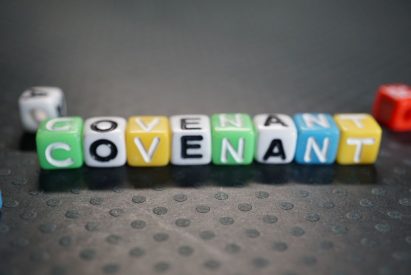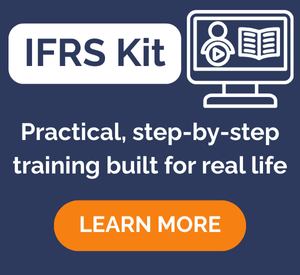Accounting for CAPEX threshold and its change under IFRS
What happens when you buy lots of assets below your capex threshold, but still high expense? And, should you revise your capex threshold retrospectively? Learn here!
How to Write Notes to Financial Statements under IFRS
Warren Buffett once said: “Other guys read Playboy. I read annual reports.” This is a profound statement indicating that Warren Buffett actually takes his time to go through a complete annual report, including the financial statements and notes. Thus, Mr. Buffett does NOT consider the…
IFRS Reporting in Hyperinflationary Economy (IAS 29)
How to report in hyperinflationary economy under IFRS in three steps: with the video!
How to present leases under IFRS 16 in the statement of cash flows (IAS 7)
How to incorporate leases under IFRS 16 into the statement of cash flows – solved example with video.
How to Account for Subsequent Expenditures in Agriculture?
How to account for veterinary costs, animal food, fertilizers, pesticides and other operating expenses in agriculture under IAS 41? Learn here!
How to prepare financial statements when going concern does NOT apply?
IFRS do not specify any rules for presenting the financial statements when the going concern basis does not apply. So, what to do? How to present the financial statements? What should we take care of? Find out here!
How to present a loan with breached covenants?
So, you have a long-term loan, you breached the covenants and it became repayable on demand. Is it current or non-current? Learn here!
How to present restricted cash under IFRS?
Advances from your clients received in cash… but you can’t use that cash. That’s just one example of restricted cash. How should you present it under IFRS?
IFRS vs US GAAP in 2020: Top 5 Most Common Differences
A few years ago I wrote an article about differences between IFRS and US GAAP. And, I was completely wrong! Why? I assumed, or better said – I expressed the hope that by 2015, we would have a single set of the global reporting standards….
IAS 10 Events After the Reporting Period
The standard IAS 10 has been here for a long time. In fact, it is one of the oldest standards in place. It is sweet and short and often it is seen as a minor thing compared to other complex standards. However, the ongoing pandemic…
Recent Comments
- BiG4 on IAS 23 Borrowing Costs Explained (2025) + Free Checklist & Video
- Mpho on How to present leases under IFRS 16 in the statement of cash flows (IAS 7)
- Silvia on IFRS 18 Explained: Full Guide + Free Video Lectures + Checklist
- Bilawal on IAS 16 PPE Explained (2025): Full PPE Guide + Free Compliance Checklist
- Augustine Fabuinkwi on IFRS 18 Explained: Full Guide + Free Video Lectures + Checklist
Categories
- Accounting Policies and Estimates (14)
- Consolidation and Groups (25)
- Current Assets (21)
- Financial Instruments (56)
- Financial Statements (54)
- Foreign Currency (9)
- IFRS Videos (74)
- Insurance (3)
- Most popular (6)
- Non-current Assets (56)
- Other Topics (15)
- Provisions and Other Liabilities (46)
- Revenue Recognition (27)
- Uncategorized (1)













